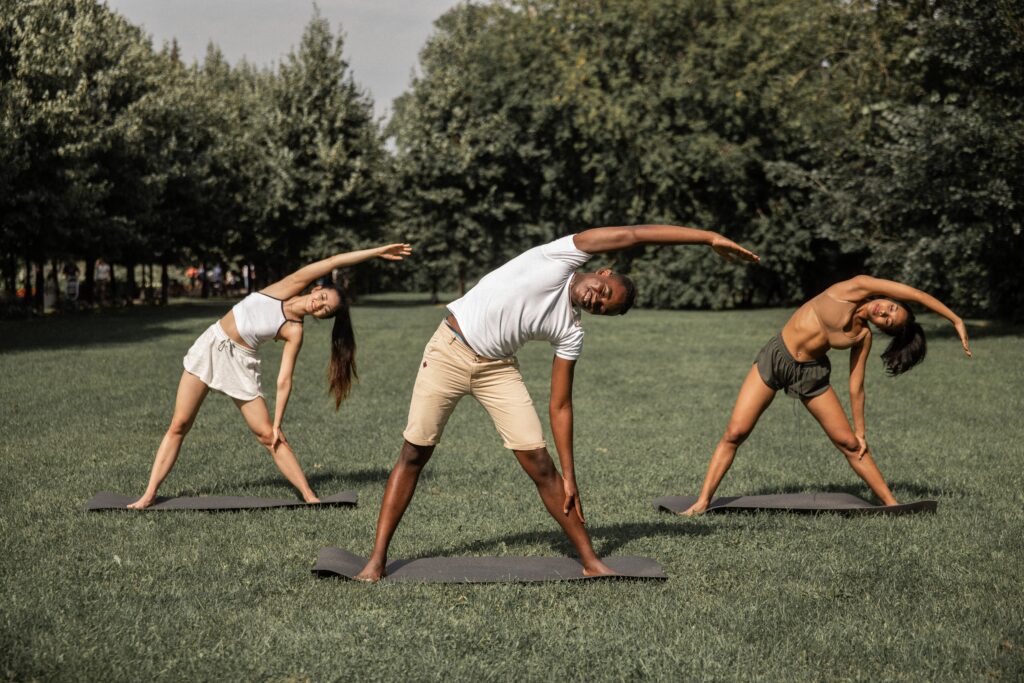Do you find yourself obsessing over work that needs to get done? So much so that you convinced yourself there isn’t any time for days off. On the rare occasion you do take a break, you feel extremely guilty and find yourself working ten times harder to make up for “wasted time.” At the end of each day, you find yourself depleted and exhausted just to wake up and do it all over again. You aren’t alone! You are a victim of the ever-growing hustle culture. At Awakened Path, we are here to tell you this doesn’t have to be your norm. We believe holistic balance is key.
What is Hustle Culture?
Hustle culture glorifies overworking with little to no rest. The cultural belief promotes working beyond the typical 40-hour work week to get ahead and optimize productivity. It is considered productive to maximize the number of hours possible in a day towards work activities. Days off are rare. Vacations or trips are just different locations to get work done. Maybe the beach has good Wi-Fi?
Hustle culture values working harder than the average person and committing to the sacrifices that come with it. The sacrifices are considered part of the process. Some of these sacrifices can include but are not limited to; sleep, time spent with family/friends, nutrition, physical, and mental health.
Why is Hustle Culture Glamorized?
Entrepreneurs and leaders will attest their success to working countless hours. Visionary entrepreneur and billionaire Elon Musk, highly promotes hustle culture and quotes “Nobody ever changed the world on 40 hours a week.” The CEO of Tesla also admits to sleeping in his office seven days a week to get as much work done as possible.
Like Musk, many serial entrepreneurs promote similar messages. The wealth and achievements of such entrepreneurs add to the glamorization of the culture. While financial gain and achievements are key selling points for hustle culture, purpose, social status, and passion are additional underlying factors. Many of us love the work we do and dedicate our lives to being experts. The truth is we can see ourselves in the success stories of those we admire the most. We feel inspired when we see what hard work and dedication can bring. Hustle culture can feel like a blueprint to achieving our goals.
Why is Hustle Culture Harmful?
While many entrepreneurs support this concept, it has detrimental effects on our physical and mental health.
Physical Health
The nature of prioritizing overworking often leads to serious health conditions. The World Health Organization found that working more than 55 hours a week increases your chance of a stroke by 35%. Working long hours causes us to feel physically and mentally depleted. Exhaustion causes distress in our body and is a direct link to the risk of illness.
Mental Health
Studies suggest that productivity decreases after 50 hours a week. Our brains are exhausted, and it takes a large toll on our mental health. Mental fatigue doesn’t help when we are trying to fulfill that hefty to do list or meet that important deadline. In fact, our tasks and routines start to feel unmanageable. We feel out of control. As a result, we experience chronic stress and burnout. Continuing to function in this place of extreme stress and overwhelm increases anxious and depressive symptoms. Without treatment to manage the stress it may develop into a mental health disorder.
Why are Chronic Stress and Burnout Especially Harmful in Hustle Culture?
The problem is that when (not if) stress or burnout occurs it does not stop the hustle culture subscribers. The habits of toxic productivity are deeply ingrained. We have trained our mind to believe that remaining busy and productive at all times is necessary. Maybe we haven’t said this out loud but deep in our conscious a little voice might be yelling “rest is for the weak.” Our body then follows these internal beliefs and it feels habitual to continue working. If anything, the exhaustion we feel is only more frustrating, and we find ourselves working harder just to drown out the extra noise. In many cases, health conditions or impairments are the only time we will take a pause – when our bodies shut down from overdrive.
The good news is— you don’t have to wait until the overwhelm becomes debilitating. Reach out to a mental health counselor to ask about individual therapy and how it can help get your stress under control.
Holistic Balance Approach to Hustle Culture
Working hard and being productive are not toxic traits. It’s the way we are working and being productive that can be toxic. Incorporating balance into our lives is key. Here at Awakened Path we teach a holistic approach to balance. We believe in the integration of the mind, body, and soul to alleviate stress. Holistic balance brings awareness internally. The highly external focused belief system in hustle culture desperately needs this balance. Inner awareness will serve as a tool for self-care and help us feel less stress, more fulfilled, and healthier overall.
When we are used to living on this hamster wheel and “hustle” mentality, slowing down can seem frightening or impossible. We feel there is always something that needs to be done and there isn’t any time to rest. This is your sign to slow down.
Here are three simple tools to help ease you into a more holistically balanced lifestyle.
- Sleep:
Prioritize getting quality sleep each night – adults need at least 7 hours. Quality sleep is known to improve moods and reduce stress, increase productivity, and lower risk of health conditions. A simple tool to improve quality sleep is sleep hygiene. Going to sleep and waking up at the same time daily, avoiding technology 30 minutes before going to bed, and listening to calming music are all examples of sleep hygiene. Creating routines like meditation, journaling, or self-care before going to bed daily are great ways to help ease your mind for better sleep.
- Mindfulness
Mindfulness is about being present and bringing our awareness to the current moment. Bestselling author and leader in living a present life, Scott O’ Neil puts it simply “Be where your feet are.” In fact, when we connect our bare feet to the earth it is known to help us feel balanced, centered and less stressed. The earth emits negative ions and electrons. When we connect our feet to the earth the negative ions act as a detoxifier and recharge us. Grounding is a great technique to help us practice mindfulness. Additional mindful practices include meditation, yoga, and deep breathing.

- Nutrition
Food is medicine for the body. Nourishing our bodies with essential nutrients is key to our physical and mental wellbeing. Many of us are aware of the power nutrition holds in our life. However, we feel unsure and stuck on where to start. Here are some helpful tips to get you started:
- Prepare your own food more often instead of eating out.
- Stay hydrated by drinking water throughout the day.
- Eat greens daily.
- Avoid added sugars.
- Don’t deprive yourself of the foods you enjoy. Moderation is key.
For a deeper understanding of the role diet plays in your physical and mental wellbeing, we offer Integrative Nutrition for Mental Health . With the collaboration of a holistic mental health counselor, Awakened Path is here to empower you to feel confident in nourishing your body and improving your well being.
Additional Resource
Here you can find a list of Top 10 foods to support your mental health.


